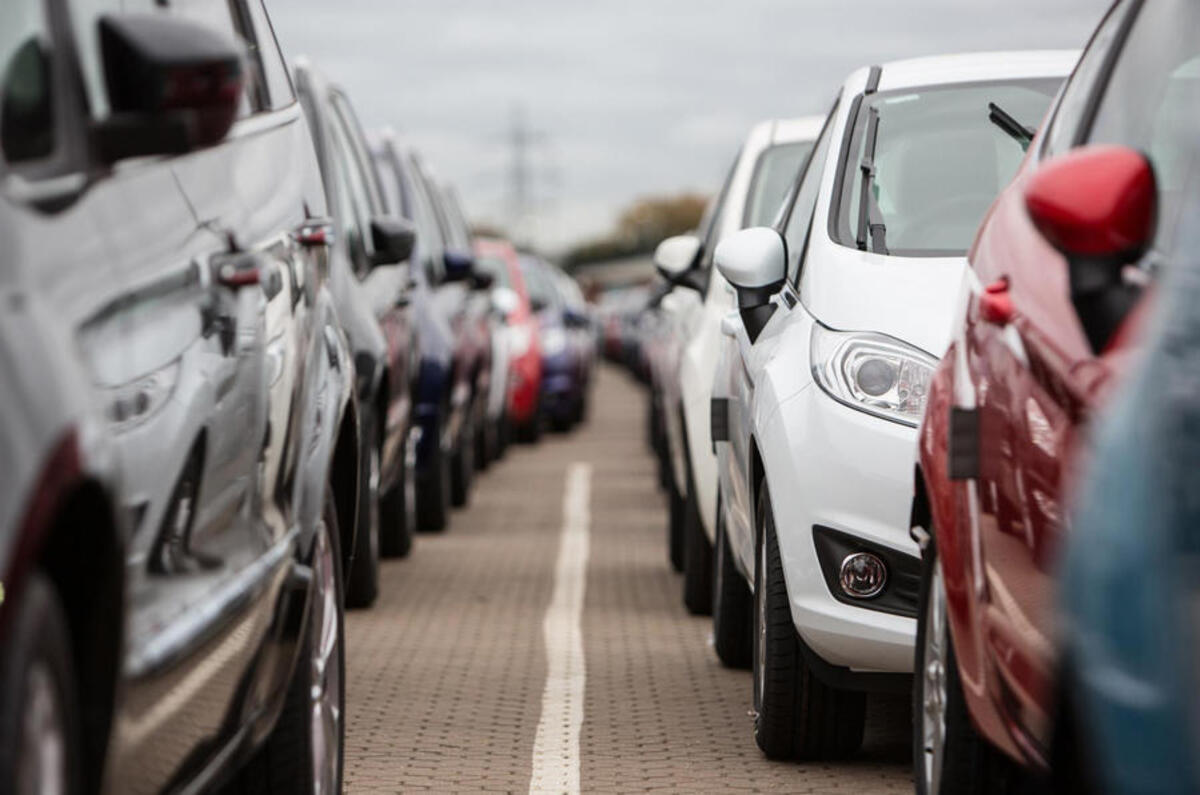The slump in demand for diesel-engined cars has continued to hit the UK new car market, which declined by 15.7% year on year in March.
Preliminary figures released by the Society of Motor Manufacturers and Traders show that demand for diesel cars was down by just over 37%. By comparison, sales of alternative fuelled vehicles – including electric cars – was up by more than 5%, and demand for petrol cars increased by just under 1%.
The decline of 15.7%, which is substantially higher than the 2.8% year-on-year drop in February, is partly because March 2017 was a record month for UK new car sales, ahead of April's change in Vehicle Excise Duty.
Top 10 best-selling cars in Britain 2018
The March figures mean that the new car market declined by around 12% in the first quarter of 2018 compared with the same period in 2017. SMMT boss Mike Hawes said that while March's results aren't a surprise given the unusual surge in registrations seen in March 2017, the continued decline highlighted a dent in consumer and business confidence.
"A thriving new car market is essential to the overall health of our economy," he said. "This means creating the right economic conditions for all types of consumers to have the confidence to buy new vehicles. All technologies, regardless of fuel type, have a role to play in helping improve air quality whilst meeting our climate change targets, so government must do more to encourage consumers to buy new vehicles rather than hang onto their older, more polluting vehicles.”
The UK Government's new diesel tax hike was introduced this month and requires new models that drink from the black pump to conform to the Euro 6d emissions standard, which isn't due to come into force until 2020. No new models currently meet that requirement, meaning every new diesel car has been hit with the rise.
Diesel now represents 33.5% of the new car market, a decrease of 10.5% compared with this period in 2017. Meanwhile, petrol now accounts for 61.4% of new car sales, up from 52% last year, contributing to a rise in average CO2 emissions for new cars in Britain that first started in February.
Things are more familiar in the bestselling car model list, with longstanding chart-topper, the Ford Fiesta, receiving 19,272 (32,808 in the year-to-date) registrations to the second placed Volkswagen Golf's 13,966 (21,203 year-to-date). The Nissan Qashqai holds onto third with 12,018 registrations (16,914 year-to-date), but the Vauxhall Corsa overtakes the Ford Focus for fourth with 11,718 sales to the Focus's 9403.
Additional reporting by Sam Sheehan
Read more
February 2018: UK new car market shrinks by 2.8%
Global new car sales: key trends and what they mean
'Diesel-saving' technology could make it to market in two years
Insight: is it time to give up on diesel engines?








Join the debate
Add your comment
diesel cars
oil breaks down 2 parts petrol, 1part diesel. so where will they use the diesel. its just a con to get tax and use the diesel elsewhere. If diesel is bad new car sales should be banned. simple and harmless. instead punish the people who nlegally bought what they thought best.
use
Trucks, vans, big cars doing high milage, big SUV's, tractors. These are uses Diesel engines should be used for not Fiesta's doing 9,000 miles a year in town
diesel cars
oil breaks down 2 parts petrol, 1part diesel. so where will they use the diesel. its just a con to get tax and use the diesel elsewhere. If diesel is bad new car sales should be banned. simple and harmless. instead punish the people who nlegally bought what they thought best.
Diesel ain't dead.
I'm going to order a convertible next time around - with all these dirty modern petrol cars producing higher Co2 levels, global warming is on the increase.
I'm considering buying shares in Amber Solaire and planting a few pineapple trees in my Scottish garden.